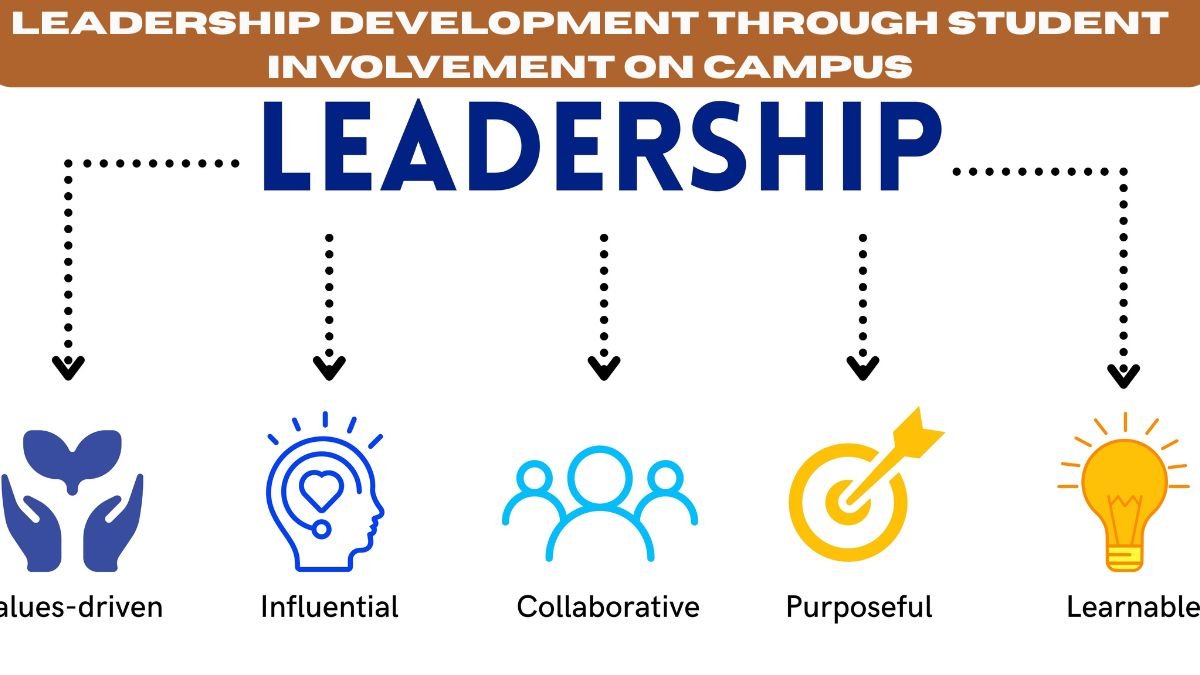In today’s era, education is not just limited to books. University or college life is not just a medium for students to gain academic knowledge, but it is also a platform to connect them with real-world experiences and develop their leadership skills. Leadership is not just a position or authority, but it is the ability to guide a group, make decisions and have a positive influence. And this skill is strengthened only when students actively participate in the campus.
Importance of Student Participation
Many times students are limited to classrooms only, due to which their personality and leadership skills are not fully developed. Participation in campus activities gives students an opportunity to hone their talents, thinking and teamwork abilities. This participation not only gives knowledge to the student but also develops confidence, decision making and understanding of leadership.
Leadership Skills and Campus Activities
Student organizations, clubs, social activities and cultural programs are great opportunities to give leadership experience to students. For example, leading a student union or club makes them experience abilities such as team management, time management and conflict resolution. This experience also gives them a competitive edge in their future career.
Leadership development through teamwork
Only those who know the art of working with a team can become a leader. By being a part of a team in various projects or activities on campus, students learn how to achieve group goals. The process of communication, cooperation and taking responsibility in the team makes them responsible and efficient leaders.
Promoting decision-making ability
An important aspect of leadership is taking correct and timely decisions. When students conduct various events or projects on campus, they face problems and have to learn to take decisions. This experience helps them to make better decisions in personal and professional life in the future.
Importance of dialogue and effective communication
Communication skills are extremely important to become a leader. Students participating in campus activities learn to express their ideas clearly and effectively through public speaking, presentation and other communicative tasks. This skill also strengthens their confidence and effective leadership ability.
Social and ethical responsibilities
Leadership is not just a name of authority and power, but also a symbol of responsibility and ethical values. By participating in student organizations and social activities, they understand the needs and values of the society. This experience makes them responsible and sensitive leaders who think not only for themselves but also for the society.
Time management and priority setting
By participating in campus activities between classes, assignments and exams, students understand the importance of time management. They learn how to balance multiple responsibilities in a limited time. This is an extremely important skill for leadership as an efficient leader always uses time effectively.
Creativity and problem solving ability
Another important aspect of leadership is creativity and problem solving. When students lead events, projects or social campaigns, they face various challenges. Finding new and innovative solutions to these situations enhances their creative thinking and problem solving abilities.
Networking and collaboration opportunities
Being active on campus connects students with students, professors and experts with different backgrounds and skills. This networking helps them with future career opportunities and guidance. Leadership is not just a display of personality but also about collaborating with and getting guidance from the right people.
Building confidence and motivation
Finally, the most important benefit is confidence. When students achieve success through leadership and involvement on campus, their confidence increases. This motivates them to progress not only in their personal lives but also in their professional careers. Confident leaders are able to face challenges, motivate the team and bring about positive change.
Conclusion
Campus life is not just limited to studies. It is an important platform for students to develop leadership skills, social responsibility, confidence and teamwork. Students can hone their leadership skills by participating in organizations, clubs, cultural and social activities. This experience prepares them to become better leaders in their future careers and lives.
Leadership is not just a title or honor, but it is a result of the qualities and abilities that students learn through campus involvement. Therefore, students should take full advantage of their college and university life, participate actively and strengthen their leadership skills.
